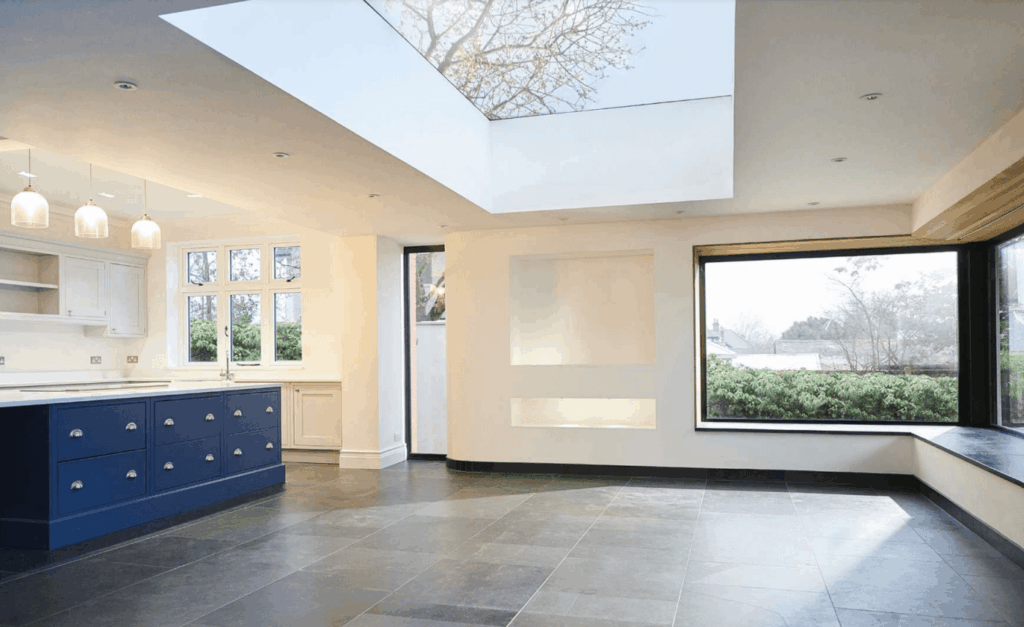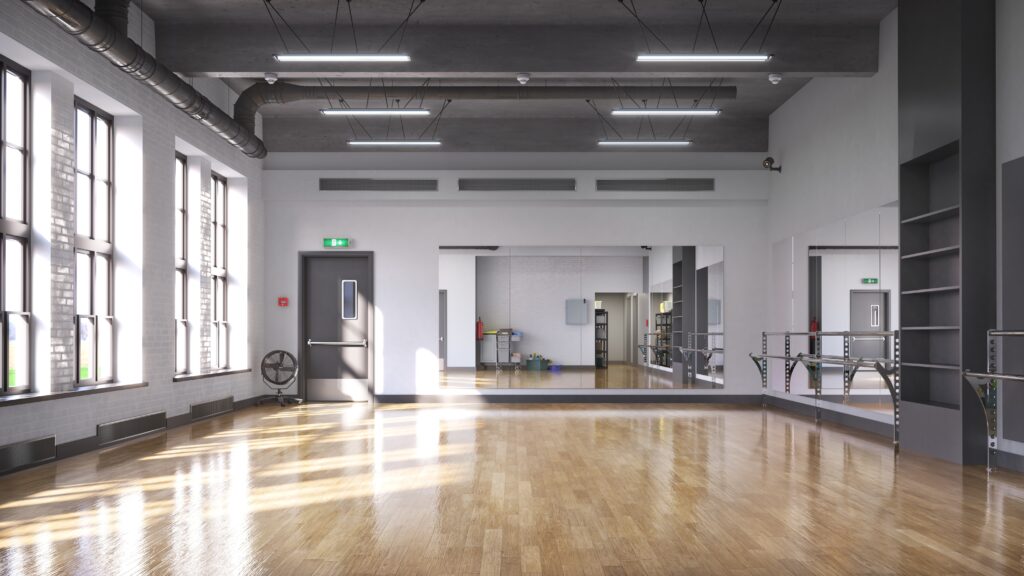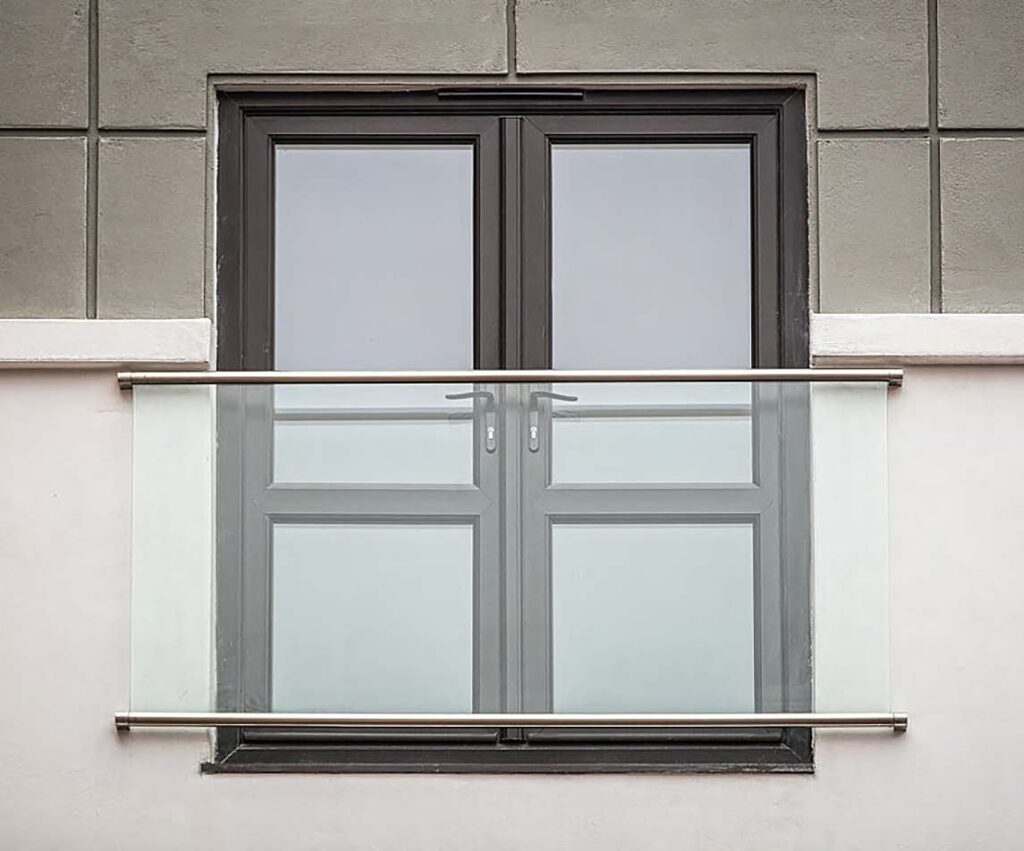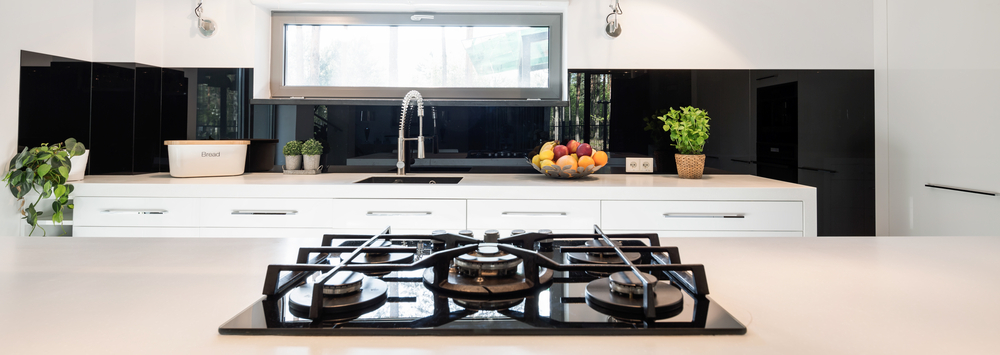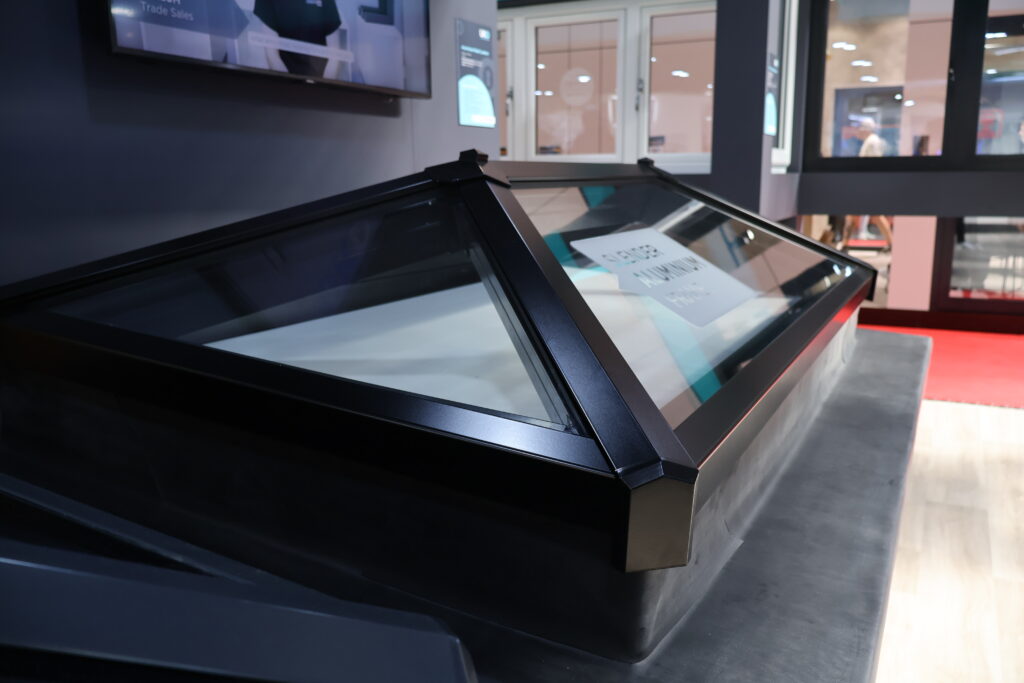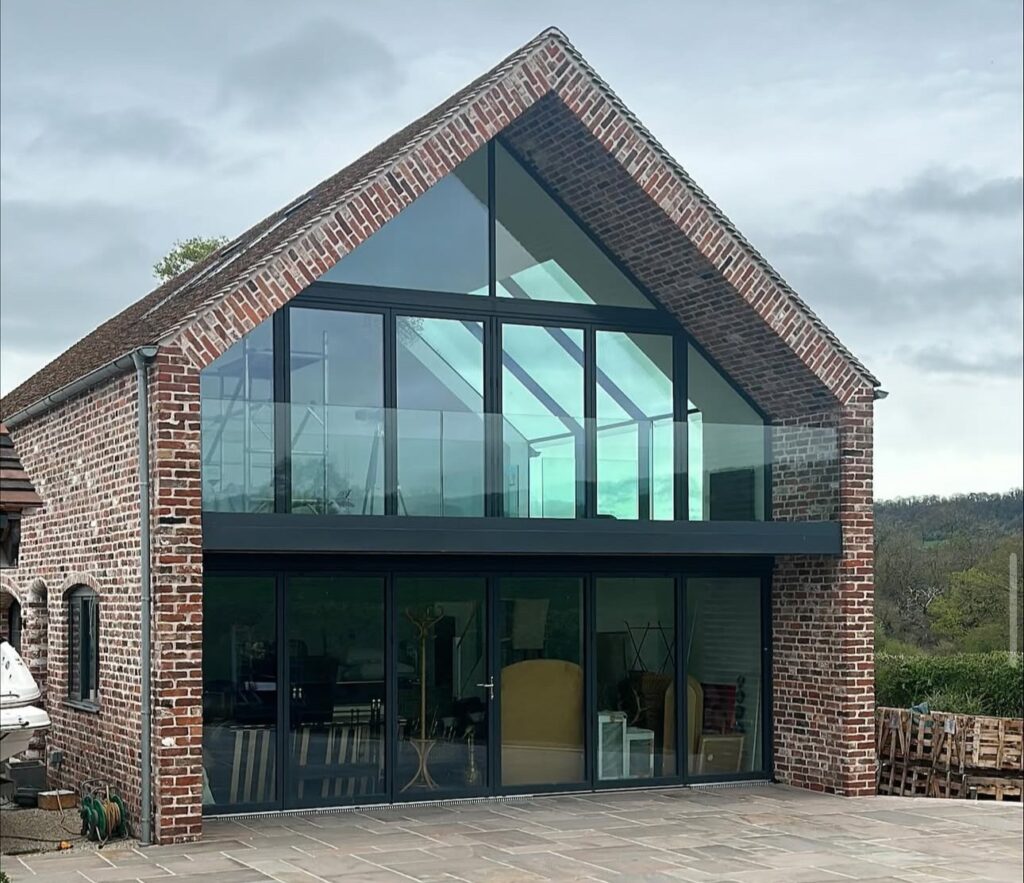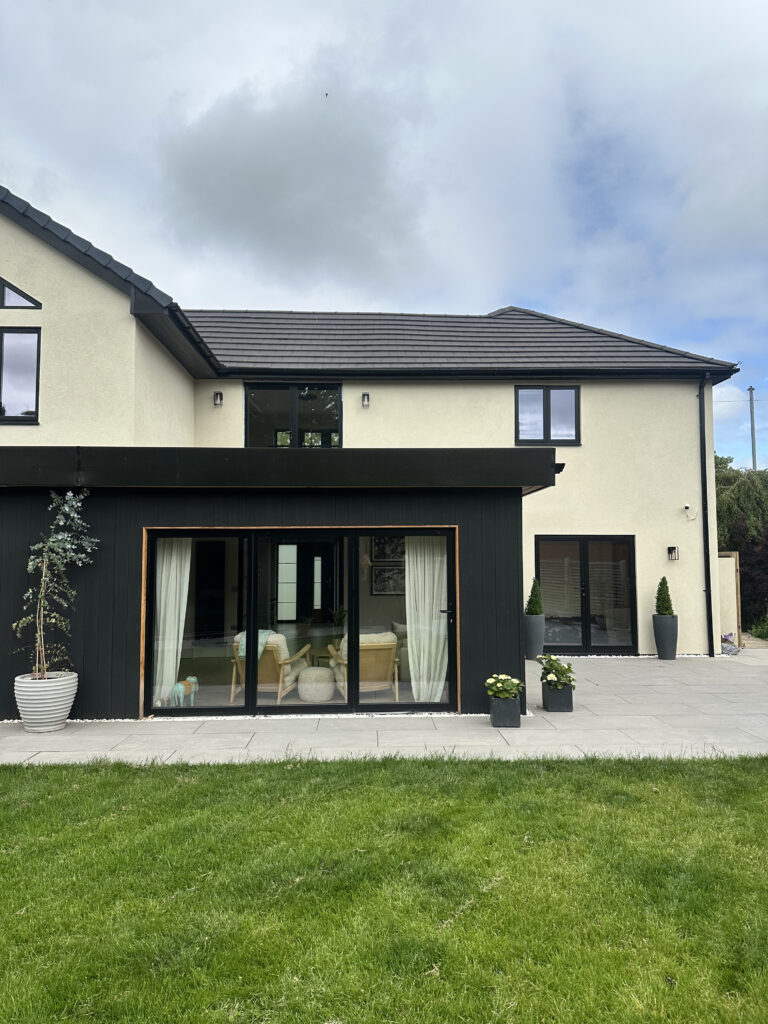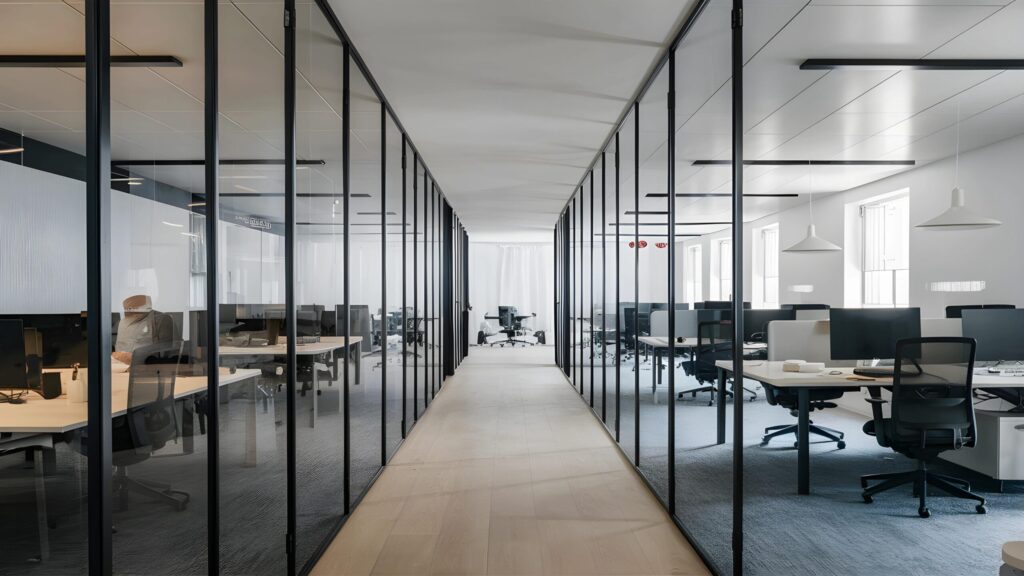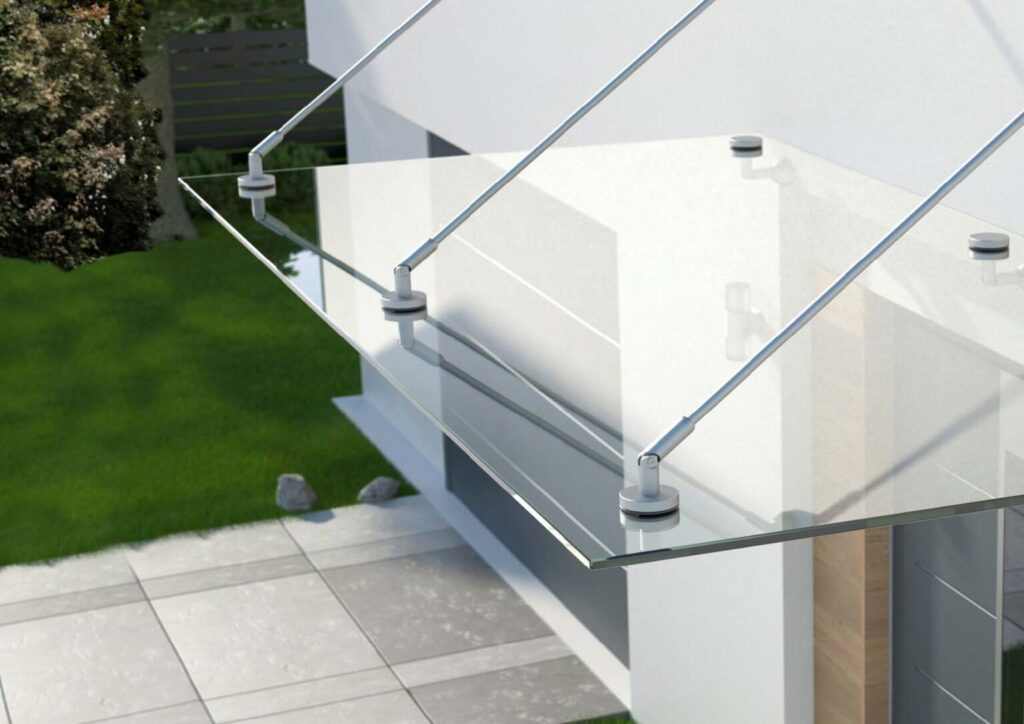What is Low Iron Glass?
What is Low Iron Glass? Glass plays a huge role in the look and feel of a building. From windows and doors to rooflights and balustrades, the type of glass you choose can completely change the appearance of a space. While most people are familiar with standard clear glass, fewer know about low iron glass, a specialist option that is becoming increasingly popular in both residential and commercial projects. But what exactly is low iron glass, and why would you choose it over standard glass? Let’s break it down. What Makes Low Iron Glass Different? Standard clear glass, while transparent, has a slight greenish tint. This is caused by the presence of iron oxide in the raw materials used to make glass. In most everyday applications, this green tone goes unnoticed. But when glass is used in large panes, thick panels, or alongside white or light-coloured features, the tint becomes more obvious. Low iron glass is made by reducing the amount of iron content in the raw materials during production. This results in a much clearer, brighter glass with significantly less green tint. The difference is subtle at first glance but becomes striking when you compare the two side by side, it has a crisper, more natural appearance. Why Choose Low Iron Glass? So, why might you opt for low iron glass instead of standard? Here are some of the key reasons: 1. Clarity and Colour Accuracy Low iron glass offers exceptional clarity, allowing true colours to shine through. This is particularly important in design settings where accurate colour representation matters for example, in kitchens with white worktops, modern interiors with pale finishes, or retail displays where products need to be seen in their best light. 2. A Premium, High-End Look Because of its brightness and clean finish, low iron glass is often associated with luxury design. It has a sophisticated aesthetic that works beautifully in contemporary homes, offices, and showrooms. Whether it’s for a glass balustrade, shower screen, or rooflight, it gives a more refined finish. 3. Perfect for Thicker Glass The green tint of standard glass becomes more noticeable as glass gets thicker. With low iron glass, even thick panels remain bright and clear, making it ideal for features like walk-on glass floors, glass staircases, or large roof lanterns. 4. Improved Light Transmission Low iron glass lets more natural light pass through compared to standard clear glass. In rooflights and roof lanterns, this means interiors feel brighter and more inviting, enhancing the sense of space and connection to the outdoors. 5. Better for Back-Painted or Decorative Glass When glass is painted, frosted, or digitally printed, the background colour can sometimes look dull or tinted if standard glass is used. Low iron glass ensures a truer, more vibrant finish for decorative applications. Where is Low Iron Glass Commonly Used? It is incredibly versatile and can be used in a wide range of architectural and design applications. Some of the most popular include: Is Low Iron Glass Safe and Durable? Yes, it is just as strong as standard glass and can be manufactured in both toughened and laminated forms depending on the application. This means you don’t have to compromise on performance when choosing low iron glass, it’s every bit as durable and safe as other glass types. Are There Any Downsides? The main thing to note about low iron glass is the cost. Because the iron content is reduced during production, it requires a more controlled process, making it more expensive than standard clear glass. However, many homeowners, designers, and architects see it as a worthwhile investment because of the improved aesthetics and light transmission. In projects where appearance and natural light are priorities, low iron glass pays for itself in the finished result. Low Iron Glass in Rooflights and Roof Lanterns One of the most popular uses of low iron glass today is in rooflights and roof lanterns. These features are all about maximising light, and low iron glass makes a big difference. If you’re investing in a rooflight or roof lantern, choosing low iron glass is a simple way to elevate the finish and enjoy the full benefits of extra daylight. Is Low Iron Glass Worth It? Ultimately, whether or not low iron glass is the right choice depends on your priorities: For many homeowners and businesses, the visual upgrade alone makes it worthwhile. It’s one of those details that subtly but significantly elevates a space, leaving a lasting impression. Final Thoughts Low iron glass is more than just clear glass. It’s a high-quality glazing option designed to maximise clarity, light, and elegance. By reducing the green tint found in standard glass, it delivers a brighter, more luxurious finish that’s especially effective in modern homes and architectural features like rooflights, roof lanterns, and balustrades. Safe, durable, and visually stunning, low iron glass is an investment in both style and performance. Whether you’re designing a contemporary bathroom, adding a statement roof lantern, or planning a striking staircase, it’s the glass that ensures every detail looks its best. At UKO Glass we manufacture a range of different glass types, including Low Iron Glass to fit your specific needs. Interested? Speak to our team on 01422 861116 today!
What is Low Iron Glass? Read More »


